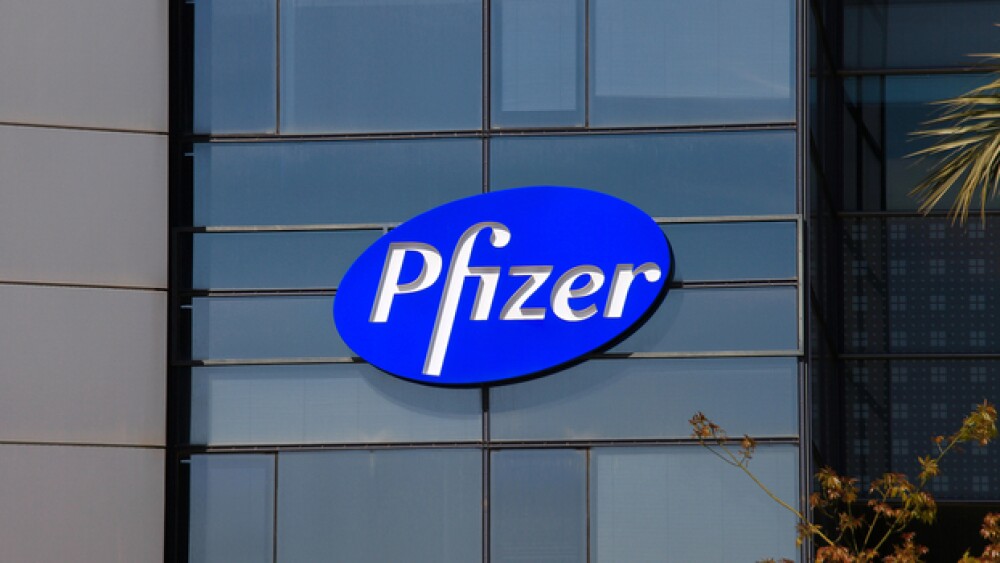Pfizer shared results from the trial on Friday, and the data determined that the trial is unlikely to show a statistically significant improvement in the primary endpoint of invasive disease-free survival in patients with breast cancer.
StockStudio/Shutterstock
Pfizer shared results from its collaborative Phase III Palbociclib Collaborative Adjuvant Study (PALLAS) on Friday, and the data determined that the trial is unlikely to show a statistically significant improvement in the primary endpoint of invasive disease-free survival in patients with breast cancer. As a result, shares of the company fell 6% in after-market trading, according to Yahoo! Finance.
The PALLAS trial looked at how palbociclib plus standard adjuvant endocrine therapy could potentially help study subjects. It was compared to the standard adjuvant endocrine therapy used in both women and men with hormone receptor-positive (HR+), human epidermal growth factor receptor 2-negative (HER2-) early (stage 2 and 3) breast cancer.
“We are disappointed in this outcome. Breast cancer is a leading cause of death around the world and delaying or preventing the development of metastatic disease is a significant unmet need,” said Chris Boshoff, M.D., Ph.D., Chief Development Officer, Oncology, Pfizer Global Product Development. “PALLAS is a large study with many subgroups and we are actively collaborating to determine if there are patients who may benefit from adjuvant treatment with the palbociclib combination. Since its initial approval in 2015, IBRANCE has helped change the treatment landscape for people with HR+, HER2- metastatic breast cancer. We are grateful to all patients, health care providers and our academic partners who have devoted so much to make this important study possible.”
Palbociclib, which is marketed under the name IBRANCE, is an oral inhibitor of CDKs 4 and 6, which are thought to be regulators of the cell cycle that triggers cellular progression. It is also being studied in patients with high-risk early breast cancer, and results from the collaborative PENELOPE-B trial are expected to be released later in 2020.
On Thursday, results from another Phase III trial were released, specifically looking into patients with advanced Stage IV breast cancer. The E2108 study, which was designed and led by the ECOG-ACRIN Cancer Research Group, looked into whether surgery and radiation should become routine practice for patients with the disease.
A total of 390 women with Stage IV breast cancer were enrolled in E2108, and all received optimal systemic treatment based on the number of other organ systems involved and tumor biomarker status. Out of the group, 256 participants agreed to be randomized to either continue with systemic therapy or to receive surgery and radiation (local therapy), and then continue onward with systemic treatment.
E2108 also compared patient-reported quality of life between the two groups of women. It discovered that there was no quality of life advantage in the group of women who received local therapy to the breast tumor. In addition, the survival rate between the two groups was identical (half of them alive after 4.5 years).
“Based on the results of our study, women who present with a new diagnosis of breast cancer already in stage IV should not be offered surgery and radiation for the primary breast tumor with the expectation of a survival benefit,” said lead investigator Seema A. Khan, MD (Northwestern University). “When making these decisions, it is important to focus energy and resources on proven therapies that can prolong life.”
Approximately one in every 20 women diagnosed with breast cancer in the U.S. annually present a cancer that has already spread beyond the breast and into other organs.





